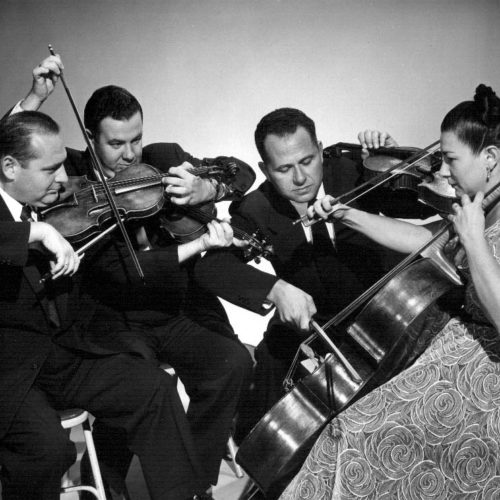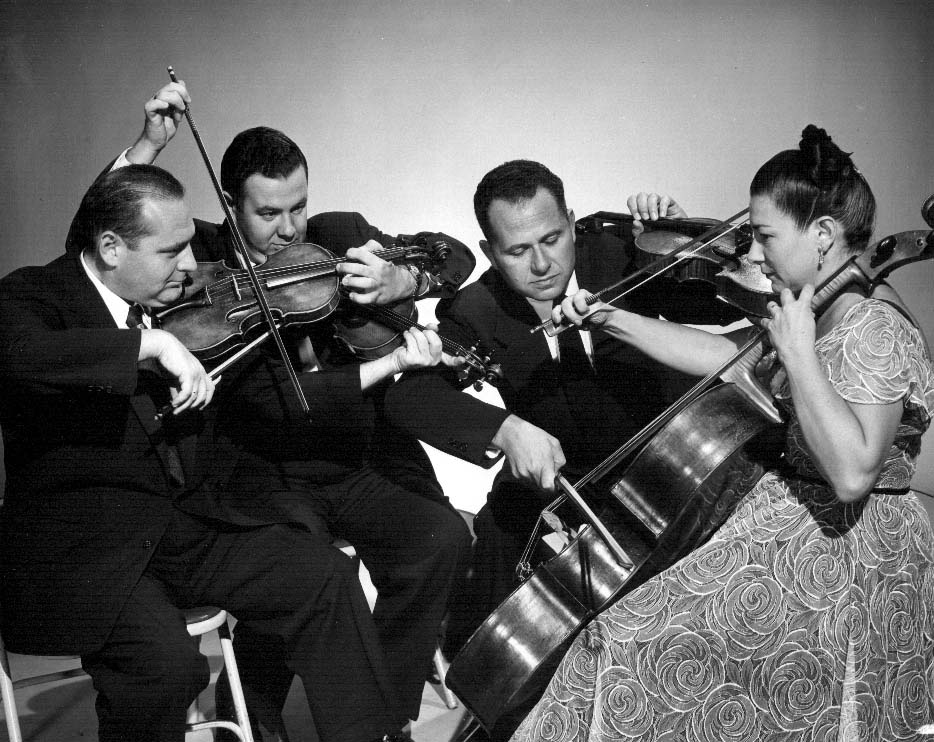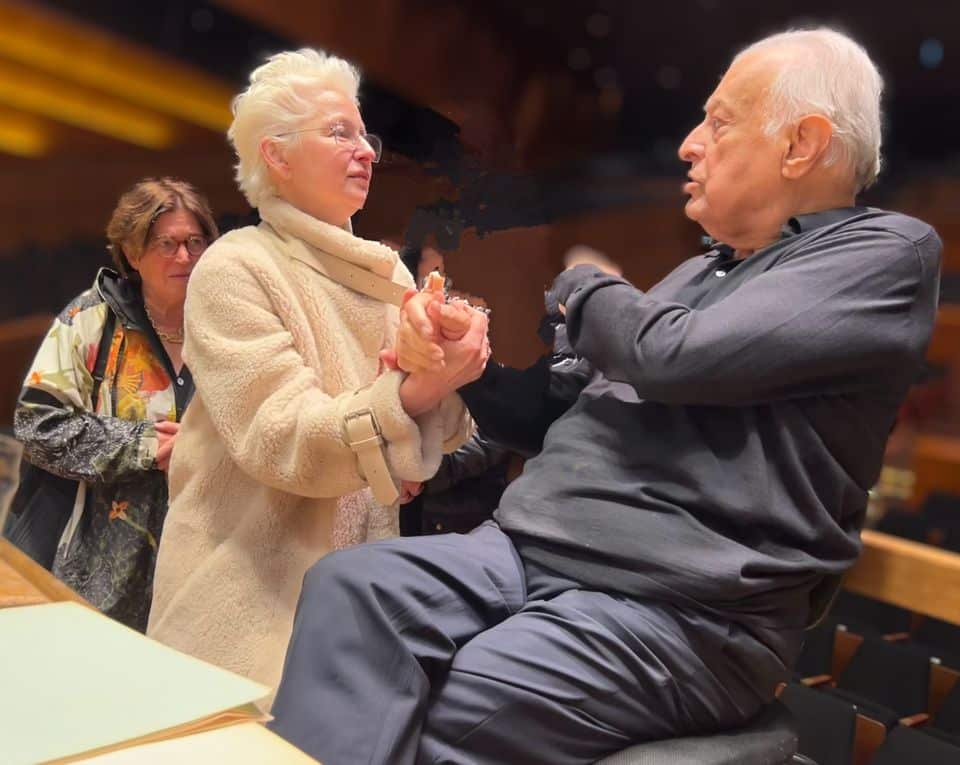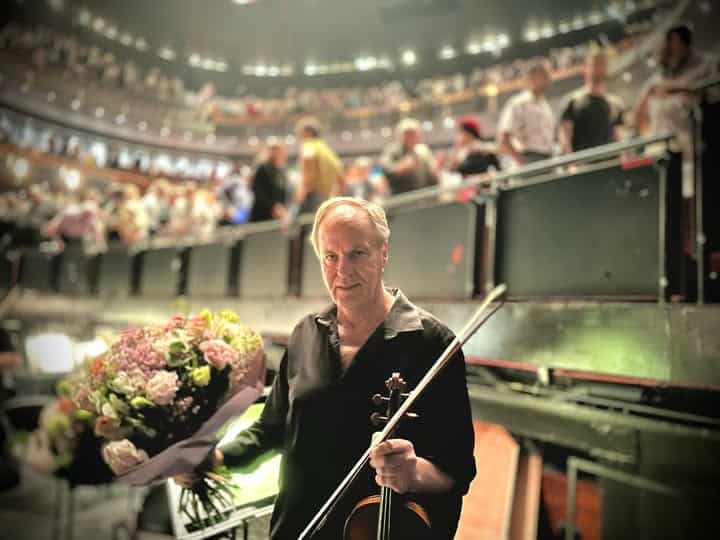Unseen video of a legendary string quartet
mainI was discussing with Leonard Slatkin last week my upcoming selections for Beethoven string quartets when he remembered that his brother Fred had a private performance by their parents, the only time the Hollywood String Quartet ever ventured onto video.
Leonard uploaded it onto Youtube and you’re among the first to see it.
The playing is glorious and the parents, in the foreground, are in tight control.
Leonard Slatkin adds: This half-hour-long program was supposed to be the first in a series, and I recently discovered it with the help of my brother, Fred. It is the only video documentation of the ensemble. You will probably notice different camera angles and even configurations of the quartet. They must have pre-recorded some of this and did the equivalent of lip syncing for some passages. The Beethoven was never commercially released on Capitol records. I wanted to share this with all of you because even though music is about listening, sometimes seeing is believing. Watch my dad’s bow arm and see if you can name anyone else who had such superb control. And my mom’s vibrato is always consistent and well-centered. There were two versions produced. One had the dean of the USC School of Music doing a rather unfortunate job of trying to describe what a quartet is. The second, and the one I have posted, has moments meant for sponsor placement. The narrator is Thomas Cassidy, who was the voice of classical music on the now-defunct radio station KFAC. He also delivered the intermission announcements at the Hollywood Bowl. This rarity is truly something to treasure, and I hope you all enjoy it.







Comments